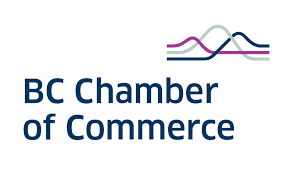B.C. employees losing the cold war over office air conditioning
A BC Hydro report finds the increased use of A/C in B.C. workplaces is leading to worker discomfort and conflict between employees and employers.
The report entitled ‘Cold War: How many B.C. employees are losing the battle over office air conditioning’ finds A/C use in commercial buildings has increased by almost a third since 2006. The increase in A/C usage has resulted in close to one-quarter of British Columbians surveyed saying they have argued with a fellow employee over the office temperature, or witnessed this type of argument between co-workers.
The survey commissioned by BC Hydro found two-thirds of British Columbians do not have the ability to adjust the office temperature themselves, or must ask permission to do so. Amongst those, 60 per cent find the air conditioning too cold in the summer months, making it difficult to concentrate on work – with women feeling this way more than men. For instance:
· Women are almost twice as likely as men to say the office temperature makes it difficult to concentrate on work.
· Almost four times more women than men describe their office as too cold during the summer.
· Nearly 60 per cent of women who reported being too cold are regularly using a blanket or wearing layers to deal with low office temperatures.
The survey results support other studies which found many office climate control systems are based on a decades-old thermal comfort formula designed to suit the male metabolic rate.
BC Hydro data shows offices in B.C. set the thermostat as low as 20 degrees Celsius. This is three to four degrees cooler than what is recommended, leading to wasted electricity and higher costs.
BC Hydro recommends businesses take the following measures to help diffuse tensions and avoid an office cold war:
· Optimize the cooling system: BC Hydro recommends offices and commercial buildings be cooled to between 23 and 26 degrees Celsius in the summer months when occupied, and the A/C should be turned off when unoccupied.
· Consult an HVAC professional: Use the BC Hydro Alliance of Energy Professionals network to hire a professional HVAC consultant who can identify and implement energy efficiency solutions.
· Ensure the HVAC system complements the office layout: Air duct balancing should be performed with each office layout change to ensure the system is working optimally.
For more office energy saving tips visit powersmart.ca.


























Comments